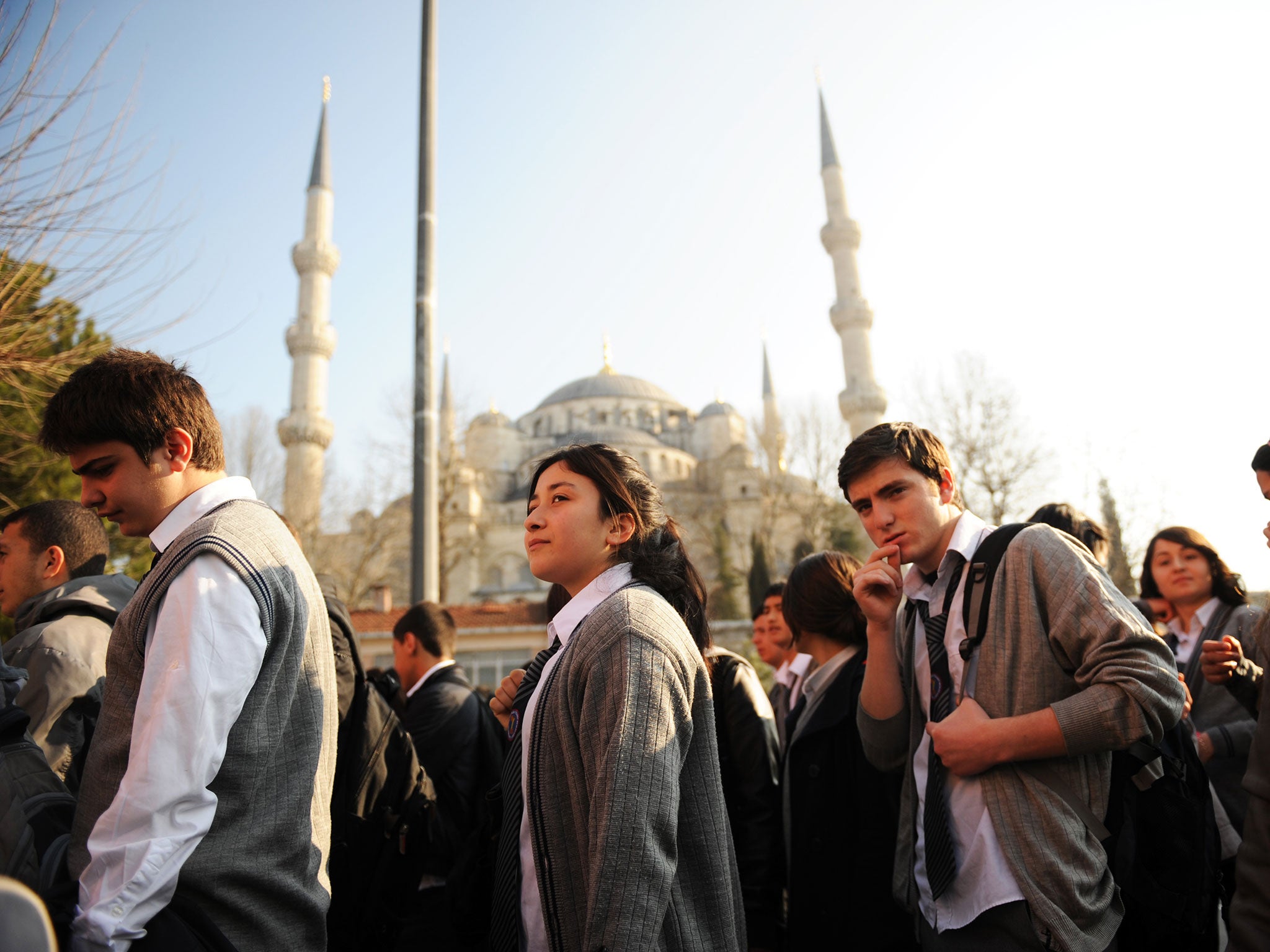Turkey to stop teaching evolution in secondary schools as part of new national curriculum
Education official says students too young to understand 'controversial subject'

Your support helps us to tell the story
From reproductive rights to climate change to Big Tech, The Independent is on the ground when the story is developing. Whether it's investigating the financials of Elon Musk's pro-Trump PAC or producing our latest documentary, 'The A Word', which shines a light on the American women fighting for reproductive rights, we know how important it is to parse out the facts from the messaging.
At such a critical moment in US history, we need reporters on the ground. Your donation allows us to keep sending journalists to speak to both sides of the story.
The Independent is trusted by Americans across the entire political spectrum. And unlike many other quality news outlets, we choose not to lock Americans out of our reporting and analysis with paywalls. We believe quality journalism should be available to everyone, paid for by those who can afford it.
Your support makes all the difference.Evolution will no longer be taught in Turkish secondary schools after being described as a “controversial subject” by the government.
President Recep Tayyip Erdogan has personally approved the change, which will be part of a new national curriculum being published later this month.
The head of the education ministry’s curriculum board, Alpaslan Durmuş, said a section on Darwinism would be cut from biology classes from 2019.
“We have excluded controversial subjects for students at an age unable yet to understand the issues’ scientific background,” he told a seminar in Ankara, according to Hurriyet Daily News.
“As the students at ninth grade are not endowed with antecedents to discuss the ‘Origin of Life and Evolution’ section in biology classes, this section will be delayed until undergraduate study.”
Mr Durmuş said pupils at elementary schools would still be given an “evolutionary point of view” and learn evolutionary biology from year five.
Claiming the curriculum was being “simplified”, he said the government was attempting to educate children in line with “local and national values”.
Academics from Turkey’s most prestigious universities have reportedly criticised the proposals, pointing out the only other country to exclude evolutionary theory from schools was Saudi Arabia.
The omission was first noticed in January, when the Turkish government first announced its new primary and secondary school curricula.
The education ministry said a draft would be discussed and criticism taken into account before the publication of the final version, including a possible replacement chapter entitled “Living Beings and the Environment”, with all references to Darwinian theory removed.
Other changes included a decrease in the amount of homework and allowing more time for children to play, and the life of Turkey’s secularist founder Mustafa Kemal Atatürk being given less focus.
Mustafa Akyol, a senior fellow at the Freedom Project at Wellesley College, said the change appeared to arise from advice given by Egitim Bir-Sen, a conservative education union.
Writing in a column for Al Monitor, he said debates about the theory of evolution date back to the late Ottoman Empire and have repeatedly surfaced under the rule of Mr Erdogan’s Justice and Development Party (AKP).
“Since the early 2000s, religious conservatives have had the upper hand in Turkey, and their distaste for the theory of evolution is well established,” Mr Akyol wrote.
“Many of them see the theory as corrosive to religious faith and want to ‘protect’ young generations from such ‘harmful’ ideas.”
The latest move is part of a wider struggle between secularists and right-wing religious groups in Turkey, which is undergoing constitutional reforms to grant the President dramatically increased powers following a referendum held in April.
The vote, which European monitors found did not meet international standards, resulted in the parliamentary system of government being replaced with an executive presidency that has long been the ambition of Mr Erdogan.
He has been accused of undermining Turkey’s democratic and secular foundations with in increasingly autocratic and religious agenda, imposing restrictions on alcohol, building new mosques and reintroducing state religious education.
More than 50,000 people have been arrested since a failed coup against Mr Erdogan in July last year, with many more dismissed or detained.
Journalists, prosecutors, soldiers, civil servants and academics are among those targeted in the ongoing purge, which has seen almost 33,000 teachers sacked.
The government has accused suspects of supporting the Gulenist movement blamed for the attempted coup, but critics say baseless accusations are being used for a wider crackdown on dissent.
Fethullah Gulen, a US-bsed cleric, has denied involvement and foreign governments including the UK have found no evidence to support Ankara’s allegations or its designation of his Hizmet movement as a terror organisation.
Join our commenting forum
Join thought-provoking conversations, follow other Independent readers and see their replies
Comments